When it comes to music production or even sampling music, headphones are simply just a necessity. Especially when you get into recording your rap vocals, singing, etc.
It’s just part of the process.
So let’s have a look at the best headphones for music production in 2023.
Edifier H840 Headphones – Best Music Production Headphones
- Professional sound - 40mm driver units fine tuned for quality sound output in enclosed ear cups
- Comfort matters - Ergonomic fit with over-ear design of lightweight body, comfortable soft leather earmuffs for...
- Solid Build - Leather headrests with steel reinforced headband for flexibility and durability
I have a pair of the Edifier H840 right now and I’m more than happy with them. Now most of you are probably like what in god’s names Edifier? I only heard of Sony, Panasonic or Beats By Dre, etc.
To be honest, I had no clue of the Edifier brand either but apparently they are pretty decent. However, if you like to stick with the brand names, I talk about them a little bit later on.
Anyways, the H840s are great for the beginner but if you are recording like your vocals everyday or more than for a couple hours a day, I would suggest to look for headphones that have better ear pads.
Everything else on these headphones is on point. Awesome noise cancellation, super lightweight and pretty comfortable too. Something just happens after like a couple hours to your ears due to leaving them on for a while.
If you are looking for your first pair of good recording headphones, these are phenomenal. The only reason I would like to upgrade is I just started recording rap vocals on a more consistent basis (More than a couple hours a day) so I need something a bit more comfy on my ears. That’s all. Excellent choice for beginners though. Great headphones for recording vocals. Hands down.
The Edifier H840s are super easy to connect as well. Since I connected them to my audio interface, I also ordered a quarter inch jack when I got these headphones online.
Panasonic Noise Cancelling Headphones
Here you’ll find other respectable headphones that you can use while recording vocals. When I upgrade (Hopfully soon), this is the bunch that I’ll be picking from:
- Premium, lightweight over-the-ear headphones offer exceptional noise cancelling performance
- Use as traditional headphones when noise cancelling is switched off. 40mm neodymium drivers deliver rich bass and...
- Smartphone compatible with detachable control cord with integrated microphone and remote for Apple (iPhone / iPod /...
One of my favorite and trusted brands, Panasonic is a great choice for studio headphones.
A lot of travellers use this so this should tell you something about the comfort level and especially the durability of these headphones.
One of the things that I really enjoy is making beats while travelling (Like on the plane) and having noise cancelling headphones in such an environment is a must. The Edifier H840s do a great job but these are even better.
I personally love the ear pads (Panasonic usually makes them really comfortable). Just make sure when you’re picking them, you go with the ‘Over-ear’ option instead of ‘In ear’. Double check on this.
Bose QuietComfort 3 Headphones
- High-performing noise reduction for home, work or travel
- Rich, detailed audio highlights musical nuances
- Comfortable, on-ear fit for hours of easy listening
I actually got these headphones from my sister several years ago. When I wasn’t that serious about music production and was just making beats on FL Studio.
These have a built in noise cancelling button and are super comfortable. Now that I think about it, my next pair of headphones will probably be this.
They lasted me for well over 4 years until I lost one of the parts. I believe it went on the side of one of the ear chambers (Related to the noise cancelling system).
Final verdict, one of the best pair of headphones I’ve ever used. Light, super comfortable ear pads and quite compact. For recording, I would consider them as a backup because when you have these own, due to the smaller ear caps (It’s not exactly over-ear as you can see), you have to turn down the volume a little more than usual so it doesn’t leak into your vocal recording microphone.
Bose QuietComfort 35 Wireless Headphones
- World class noise cancellation makes quiet sound quieter and music sound better. Connectivity Technology: Wireless
- Volume optimized EQ for balanced audio performance at any volume
- Wireless convenience, with easy Bluetooth and NFC pairing aided by voice prompts
Another great option by Bose. The QuietComfort series has actually been around for quite sometime and is already considered one of the best of all time. After all, when it comes to noise cancellation, Bose literally ‘runs the streets’ as they say.
With Bose you can always count on sound quality and to be honest, you don’t need an incredibly good sounding headphones for recording. As long as it’s comfortable, doesn’ t leak that much noise or take any of the outside noise in, you’re good to go.
Although there have been cases where some of the components were malfunctioning, those cases are fairly rare with Bose. If you’re in the studio recording vocals for a few hours a day, this is another great choice.
Audio-Technica ATH-M20x Headphones
- Advanced build quality and engineering
- 40 mm drivers with rare earth magnets and copper-clad aluminum wire voice coils
- Tuned for enhanced low-frequency performance
Well you can’t talk about headphones and music production without mentioning Audio Technica. The ATH-M20x are considered entry level recording DJ headphones but in my opinion, they are perfect for someone recording at a home studio or even in some professional studio in Los Angeles as well.
Great isolation (Noise cancelling) which is what is needed the most when recording, they are super durable and the ear pads are designed for longer user that’s why they are comfortable (Like real DJ headphones are suppose to).
Overall this is another great option for you beginners who are just looking for a quality headphone to start their vocal recording.
Best Studio Headphone Brand
When it comes to headphones, brands play a strong role in my book. I kind of have that same view on all music equipment because if you think about it, if you are going to shell out a decent amount, you expect to get long lasting and quality equipment.
So that’s why brands definitely matter when it comes to getting headphones. Here I talk about my top headphone brands for recording vocals. I know you’ll find this list useful.
Edifier Headphones

Okay call me bias but I was heavily impressed. Especially after getting my first pair of recording headphones from these guys. I honestly never heard about them but before but after doing some research, I realized these guys are the real deal.
In fact, they specialize in making headphones, earphones and speakers. I guess it’s fair to say that I lucked out but I’m glad I did. Any brand that is easy for most to get and give you the results you want is fine with me. Edifier has definitely earned it’s place as one of my top 10 headphone brands.
Panasonic Headphones

There was a time when it electronics were judged by where they were made. If they were made in Japan, you knew you had something special. Panasonic is one of those brands. Don’t want to get too off topic but I actually saw both of their factories in Osaka (While on the train), it was awesome.
Anyways, since inventing their own version of a CD player back in 1982, Panasonic has been synonymous with portable audio and the accessories that come with it (Like Headphones).
Panasonic Headphones on Amazon
Bose Headphones
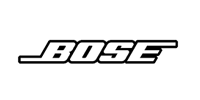
Another major brand when it comes to making quality audio equipment, Bose noise cancelling headphones are considered the best in the business. In fact their QuiteComfort series is considered a market leader.
I love their home audio equipment and now glad to see that they are slowly drifting into the home music production area as well.
Audio-Technica Headphones
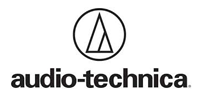
Well if you produce music you’ve already heard of audio technica. They got their fame from making DJ equipment including headphones (How fitting right?).
If there is any brand here that has some real life experience in how importance noise cancelling is for DJs and music producers, Audio technica is right up there.
There products are usually good quality and they are a respectable brand in the music production industry in general.
Audio Technica Headphones on Amazon
Anatomy of a Studio Headphone
Every headphone is made up of unique components that makes the specific model stand out. However, these are the basic parts of an average everyday recording headphone.
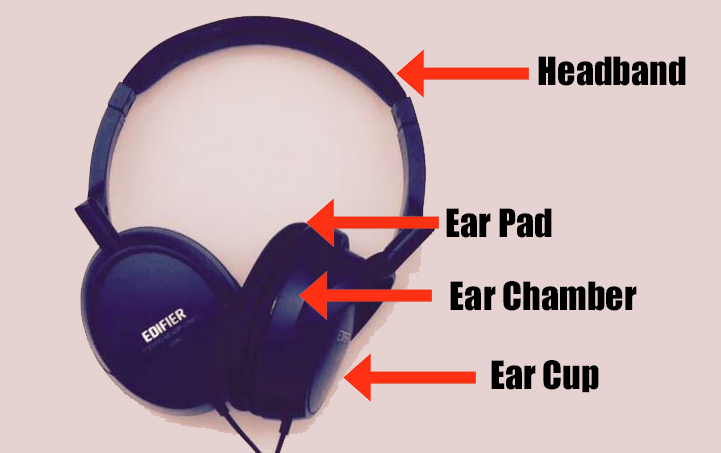
Headband
It is the strap that holds the basic structure of the headphones together. Since it usually rests on top of your head, the more lightweight it is, the better it’s going to feel when it rests on top of your head.
Ear Cup
The outer casing that contains the ear chamber. Basically the outside part of what goes around each ear.
Ear Chamber
This section contains the ‘electronics’ that make your headphone work.
Ear Pads
What you ears rest against when you put your headphones on.
Head Pads
Found in some headphones. They are placed right below the headband and serve as an additional source of support for the overall structure of your headphones. Their objective is to provide an additional layer of comfort for the top of your head.
Open Back vs Closed Back For Music Production
Don’t even worry about this but to give you a less technical and straight to the point answer, most consumer headphones (Basically everyday headphones that you and I use) are considered “close back”.
The biggest difference between open back and closed back headphones is the spatial/stereo imaging (Don’t worry about it) and bass response.
Open-back headphones also have a higher impedance (Use more electricity basically) as they often work with larger drivers (Bigger equipment) for extended frequency range (More detailed and clear music). This translates to a more flat/accurate response (Weak mimicry of studio monitors).
It kind of makes them ‘similar’ to studio monitors in principal but still, nowhere close to mixing on proper studio monitors. So it’s downright hilarious when I read things like “If you’re on the go, you can just mix on these headphones” lol – Obviously these people have never recorded any real music.
Also often times you will find that open back headphones require you to crank the volume to max on a consumer device such as a cellphone’s headphone jack to be able to hear the audio source at a reasonable level.
Most open back headphones require a dedicated headphone amp with more suitable matched impedance ratings. When you are recording vocals, all you need is a simple set of noise cancelling and comfortable headphones. No additional directly related equipment unless it’s like a different input headphone jack or something.
Needless to say, open back headphones are probably not the best choice for public transit as you will be able to hear everything around you and everyone will be able to hear what you’re listening to as well.
Aside from enjoying the isolated aural environment, closed-back headphones also have a lot more punch and clarity (which might not be the most accurate, but provides a nice slightly “enhanced” effect).
To summarize, you will find most open back headphones in studios. However, when recording they will ALWAYS use closed-back headphones so the mic doesn’t pick up the click track while tracking.
Why Do Singers Wear Studio Headphones While Recording
Great question. The reason singers, rappers or anyone trying to record vocals wears headphones is because the track they want to sing or rap on is playing through the headphones. This is how most artists record their music.
They play the beat in the headphone and then sing, rap or whatever it is they are trying to do. This helps capture the exact style and / or emotions that the artist is trying to convey. Definitely, the best way to record for the majority or rappers and singers out there.
What Are The Best Studio Headphones For Recording Vocals
Of course it’s all about personal preference but if your headphones are comfortable, light and when you record your vocals there is no sound leakage into your mic, you got a good pair of headphones.
Are Beats Studio Headphones Good For Recording
Although Beats headphones (Beats By Dre) are awesome for enjoying music, they are not the best for recording.
One simple reason is sound leakage. When you put your pair of Beatsbydre headphones on and record vocals, the sound usually leaks out and goes straight into your mic.
Commercial headphones are designed that way and there is nothing wrong with that. It just wouldn’t cut it when it comes to recording your vocals though.
You might be able to get away with a “Over-ear” version of Beats but it’s not really worth it. Get them if you want to enjoy the music you make but don’t use them to record. At least they are not my choice when it comes to recording vocals.
Are Bose Studio headphones good for recording?
Unlike Beats By Dre headphones, at least Bose gives you tons of noise canceling and over-ear headphone models.
In fact, I’ve used the over-ear and noise-canceling versions for recording music in the past. So as long as they are “over-ear” models and offer noise canceling as well, then you should be good.
Just avoid the typical commercial headphones by Bose when recording. Remember commercial headphones are for enjoying music, not recording (Sound leakage issues).
Are open or closed studio headphones better for recording voice over (Adlibs) or vocals?
Closed-back headphones are used for recording vocals. Most headphones on the market today are closed back as well. Open-back headphones leak sound and also require an additional headphone amp to increase the volume, etc.
Open-back headphones are great but not when you are recording vocals.
Avoid them for recording.
Can you mix on headphones?
To be clear, you DON’T mix on your headphones.
They play a key role in anyone’s studio but you don’t mix on them. At least not your final mix.
You mix tracks on studio monitors.
That said, you do need headphones in the studio for the following reasons.
Noise cancelling ability: Most important part. As when you record vocals, you don’t want it to leak out into the microphone.
You already have to deal with getting rid of the natural background noise that usually occurs, the last thing you need is additional unwanted sound that could be easily avoided.
Weight: The more lightweight your headphones are, the more tracks you will end up finishing. This is essential as sometimes you have to record more than a few takes for your vocals or your adlibs, etc.
If you headphones are heavy, eventually they will take it’s toll and you will not only record less ‘stuff’ but it may end up physically harming you in the long run. So the lighter the headphones, the better.
Comfort Factor: Good recording headphones have to be comfortable. There is no doubt about it. The more comfortable you are the more you will record. As a beginner, you must record as much as you can so you get better faster.
Simple as that. So what is the ‘comfort’ part you should look at when it comes to selecting headphones? The ear pads.
I’ve found that it’s the most high quality headphones that usually come with great ear pads but I’ve picked out some affordable “gems” that you can pick up as well.
Length of chord (Wire): The longer the better. Just because a longer chord will give you more options on how and where to place your microphone, mic stand or both. It will just make things a lot more flexible for you.
Also there are two types of headphone wires. Curled or coiled and straight. Straight ones are the better choice as you can place them anyway you want. Headphones with curled or coiled wires are usually used by DJs so they retract when necessary.
As the DJ is usually moving around too much and a longer straight wire can get tangled up quite easy.
Headphone jack / adapter: Are you connecting your headphones to your audio interface? I hope so well then most likely, you might need a quarter inch attachment (1/4″). They usually look like this and are commonly referred to as a headphone jack or adapter.
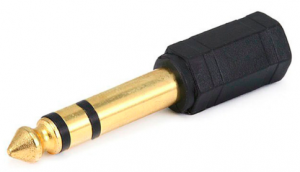
Just double check this before you purchase your set of headphones. After all, you want to get started as soon as you get your headphones. Also make sure you get a gold plated quarter inch jack. They mostly are.
1/4 Headphone Jack on Amazon.Sound Leakage: When you are recording your vocals, you naturally need to be close to the microphone. If there is too much sound leakage from your headphones, you won’t be able to record properly. Just make sure your headphones also have quality ear pads.
Now depending on how much you are willing to invest and if budget is an issue, go with the one that are most noise-canceling and comfortable.
By the way, I’ve been seeing a lot of bogus information on using “open back” headphones for recording and “closed back” for mixing. You NEVER mix on headphones – PERIOD.
You use real studio monitors for mixing and that’s it.
There is lot of funny mumbo jumbo on the internet about recording and mixing music.
That’s why I always say never listen to someone who doesn’t have the results you seek.
Also stay away from music production forums. They are just people who like to ‘nerd’ out about music technology.
Just seek out real professionals and learn from them directly.
Related Topics
Sources:
- Headphones For Music Production
- Do music producers recommend beats headphones?
- Tips for Producing and Mixing with Headphones
- Considerations for Mixing with Headphones vs. Monitors
- ELI5: Why do singers wear headphones when they perform?
- How do DJs perform without headphones?
Table of Contents
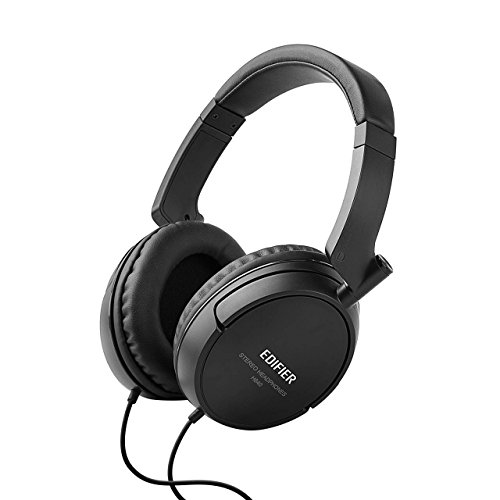




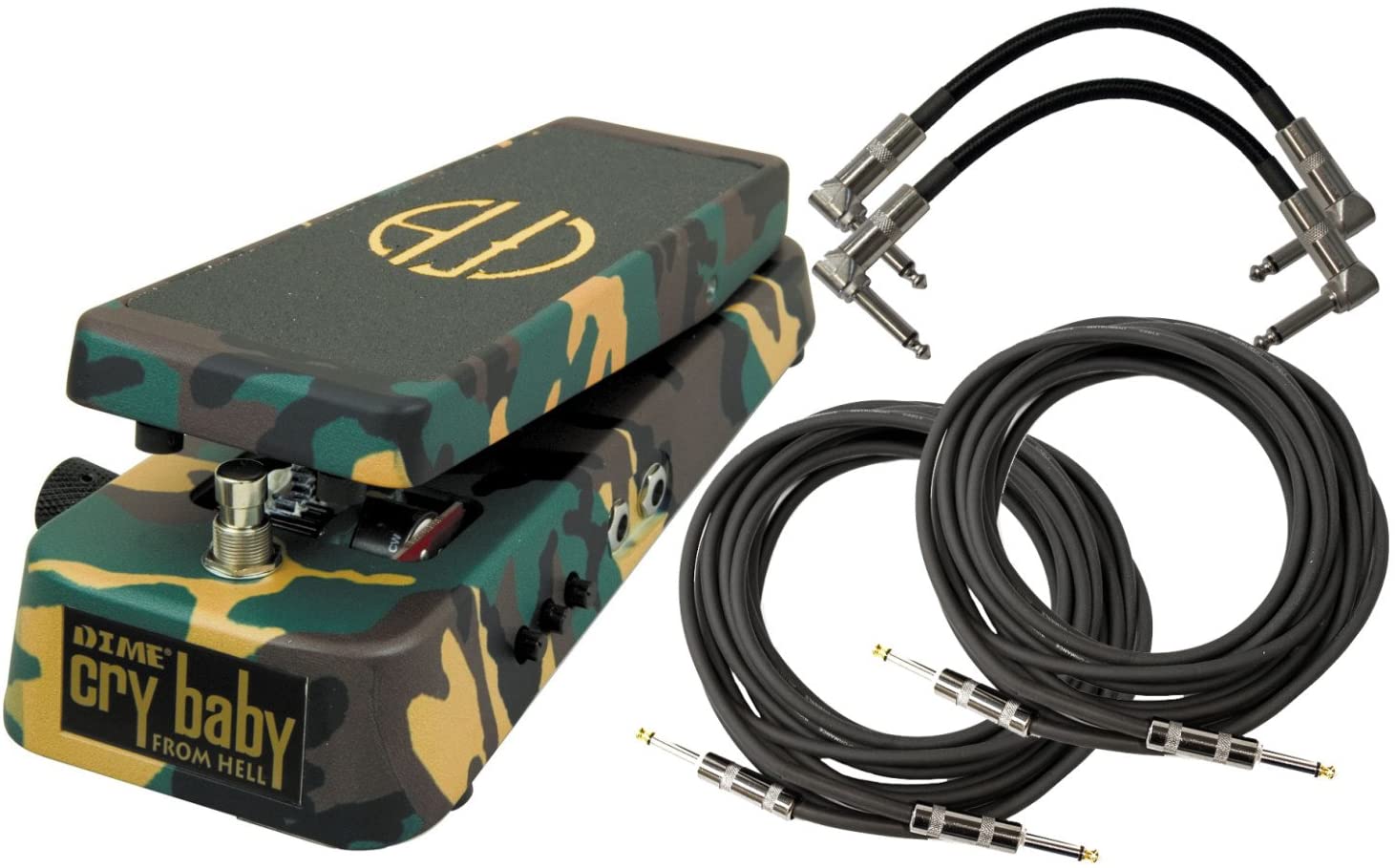
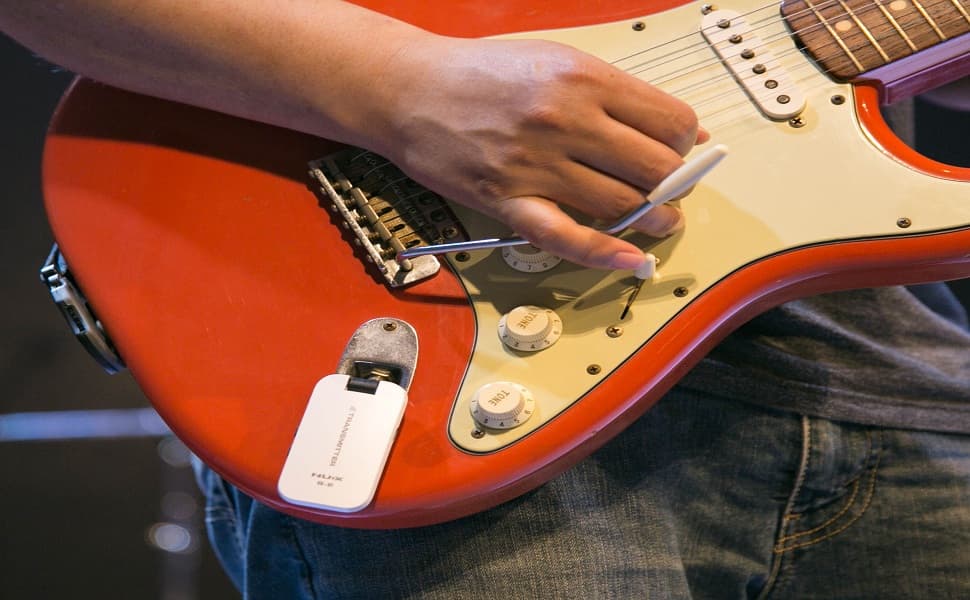
![[Cover] Best Ukulele For Beginners](https://www.techlifeland.com/wp-content/uploads/2018/12/Cover-Best-Ukulele-For-Beginners.jpg)